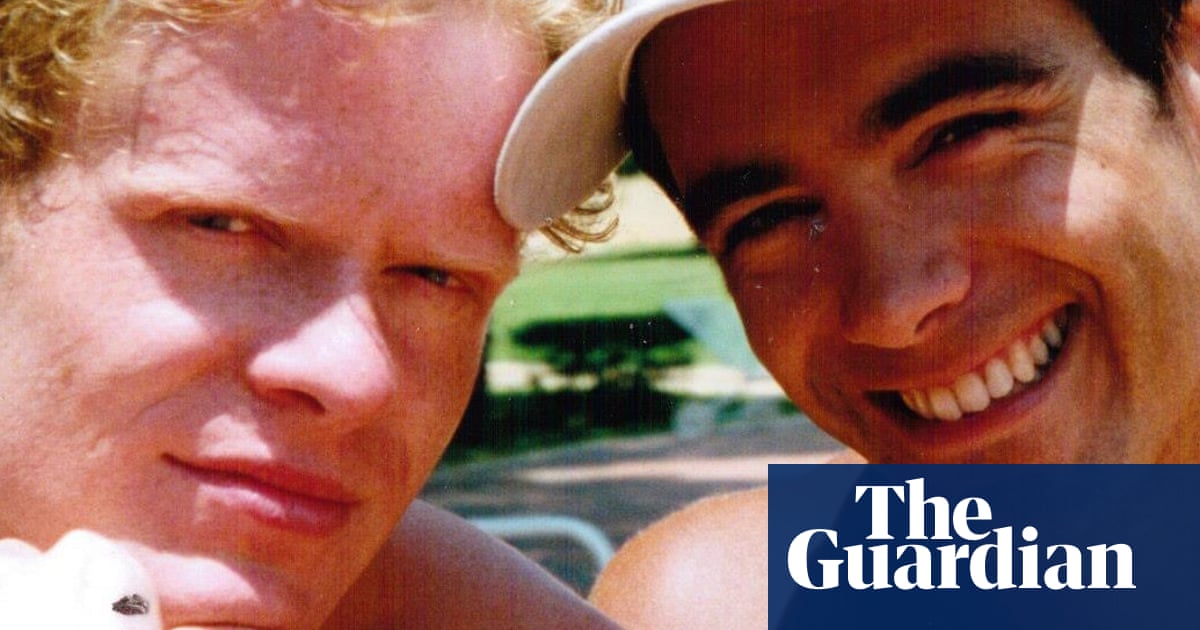“You are aware that he is returning home to spend his final days, right?” This gentle inquiry was directed at me at St Mary’s hospital in Paddington, London, back in 2004, where I was picking up my boyfriend, Miguel. These words were spoken with care by Gordon, his kind-hearted Scottish ex-partner, almost as if he wanted to ensure that I grasped the gravity of the situation.
Was I truly cognizant of Miguel’s imminent return home for his end-of-life care? To be honest, I wasn’t fully prepared. Over the past year, his health had been deteriorating due to HIV, yet he had managed to maintain his independence until now. I held onto a glimmer of hope that perhaps he would recover and things would go back to normal. Gordon’s question, however, shattered my denial.
Our paths crossed in a London nightclub in the year 2000. Miguel, my partner who was five years my senior, worked as a video games tester and had lived in Africa, Portugal, and London. He possessed both kindness and striking looks. After just three months, we exchanged keys to our apartments, and from that moment on, we were inseparable. It was six months into our relationship when he disclosed his HIV-positive status to me. I reassured him that it changed nothing between us. While it wasn’t a falsehood, it didn’t encapsulate the complexity of my emotions. What did being HIV positive entail in the year 2000? Wasn’t it considered less life-threatening by then? I would soon learn the harsh reality sooner than expected.
I regret not being more inquisitive. Had I probed further, I might have uncovered that Miguel occasionally neglected to take his medication. He had been on some form of treatment since 1989; perhaps he became less diligent about it or grew weary of the side effects. I suspect this lapse contributed to his declining health in 2003. His weight loss was noticeable, and by the year’s end, his complexion had turned pallid. He disregarded self-care, sacrificing sleep to indulge in video games.
In the middle of 2004, we decided to take a break from each other. He spent the summer with his family near Lisbon while I attempted to overcome my struggles with substance abuse. Over the past five years, I had gradually lost control over my drug and alcohol consumption, initially failing to recognize it as a problem.
Upon Miguel’s return to London that September, he was promptly admitted to St Mary’s hospital. We clung to each other on his hospital bed, and in my mind, the break was over, and we were reunited. A week later, the time came to bring him home, and the weight of that question, “You know he’s going home to die?”, loomed heavily in the atmosphere.
If Miguel appeared gaunt before, now he was skeletal. His mobility was diminishing rapidly. Our world shrank to just the three of us: me, Miguel, and his two closest friends, Gordon and Michael. Each of us contributed our strengths; they excelled at advocating for Miguel during medical appointments, while we ensured he adhered to his medication regimen and provided nourishment. It was a heart-wrenching experience, compounded by my own anxieties stemming from other challenges: coming out to my parents, coping with a demanding job, struggling with sobriety, and facing recurrent relapses.
When Miguel passed away in January 2005 at the age of 35, I was shattered. With the responsibility of caring for him lifted, memories of our time together inundated my thoughts. To trick my mind into believing he was still present, I resorted to sleeping with two hot-water bottles. A friend of Miguel’s, Jennie, who he had met while volunteering, delivering meals to individuals homebound due to HIV-related illnesses, sent a heartfelt card emphasizing the significance of our efforts in caring for Miguel. I clung to her words desperately, even as I harbored resentment towards a world that seemed oblivious to my grief and anguish.
In the ensuing eight years, I was adrift. At times, I sought traces of Miguel in others, scanning the streets and online platforms, gradually lowering my standards for finding someone “like Miguel”. Periods of recovery, albeit brief, made my relapses even more crushing. However, it was a severe fall in late 2012 that resulted in a spinal injury, prompting me to wholeheartedly commit to sobriety.
The ordeal that Miguel endured continues to haunt me. I strive to move forward, cherishing moments of joy when they arise. My spinal injury presents numerous challenges, causing persistent pain. Despite the ongoing discomfort, I have engaged in bereavement support training with a charity and embarked on studies in psychoanalysis. I await a spinal implant that may enhance my mobility, deferring my pursuit of a Master’s degree until then. While there have been fleeting romances, I have not ventured into another serious relationship. Instead of seeking a replacement for Miguel, I am grateful for the opportunity to have shared a part of my life with him.
